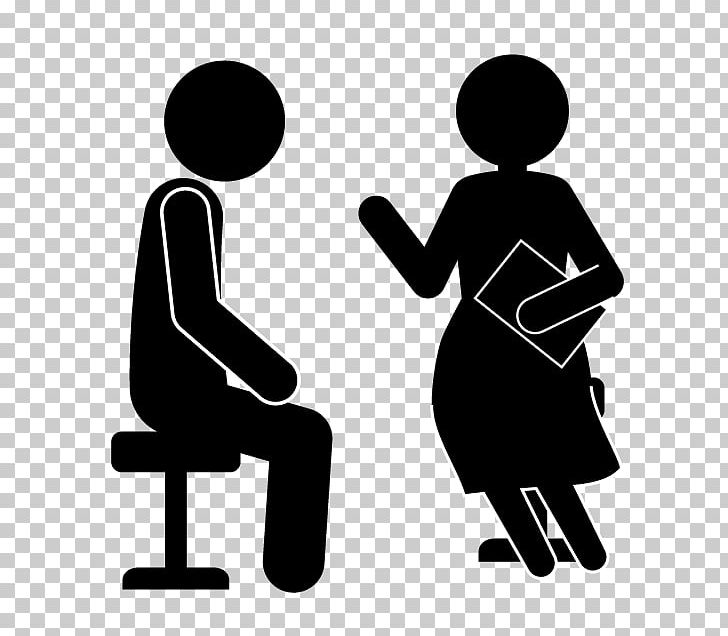If you want to be a successful clinical psychiatrist, there are a few things that you need to know. First and foremost, it is important to have a passion for helping others. In addition, you must have strong communication skills and be able to build relationships with your patients. It is also important to stay up-to-date on the latest research in the psychiatric field. Finally, it is essential to be compassionate and patient when working with patients. If you can embody these qualities, then you will be well on your way to becoming a successful clinical psychiatrist! In this blog post, learn detailed descriptions of a clinical psychiatrist.
Contents
- 1 Who Are Clinical Psychiatrists?
- 2 Types of Clinical Psychiatrists
- 3 What Does a Clinical Psychiatrist Do?
- 4 What Skills Does a Clinical Psychiatrist Need?
- 5 What Are The Steps To Becoming a Clinical Psychiatrist?
- 6 What Are The Benefits of Seeing a Clinical Psychiatrist?
- 7 Are There Any Drawbacks?
- 8 Conclusion
Who Are Clinical Psychiatrists?

Clinical psychiatrists are medical doctors who specialize in diagnosing and treating mental illnesses. They use a combination of psychological and medical treatments to help their patients.
A clinical psychiatrist first meets with a patient to assess their condition. They will ask questions about the patient’s symptoms, thoughts, feelings, and behavior patterns. They may also order tests, such as blood tests or brain scans. Based on this information, the psychiatrist will diagnose the patient with a specific mental illness.
After making a diagnosis, the psychiatrist will develop a treatment plan for the patient. Treatment plans may include medication, psychotherapy, or hospitalization. The goal of treatment is to help the patient manage their symptoms and live a more functional life.
Clinical psychiatrists often work with other mental health professionals, such as psychologists and social workers. They may also consult with primary care physicians to provide a more comprehensive treatment plan for their patients.
Types of Clinical Psychiatrists

There are many types of clinical psychiatrists, each with its unique strengths and weaknesses. It is important to find the type of psychiatrist that best suits your needs.
Some of these types of clinical psychiatrists are:
Clinical Psychologists
One of the most common types of clinical psychiatrists is clinical psychologists. They provide therapy and counseling to patients with mental disorders. Clinical psychologists use different techniques to treat their patients. There are many subspecialties within clinical psychology, such as child psychology and forensic psychology. People who want to become clinical psychologists must have a master’s degree or higher in psychology.
Psychiatrists
Psychiatrists are medical doctors who specialize in the diagnosis and treatment of mental disorders. They can prescribe medication and provide therapy. Psychiatrists usually have a four-year undergraduate degree, followed by four years of medical school. After medical school, they must complete a four-year residency in psychiatry.
Psychoanalysts
Another type of clinical psychiatrist is a psychoanalyst. They use Freudian techniques to analyze their patient’s behavior and help them understand their thoughts and feelings. Psychoanalysts must have a four-year undergraduate degree, followed by four years of medical school and four years of psychoanalysis training. Also, they must be licensed as a psychiatrist.
Child Psychiatrists
Child psychiatrists are medical doctors who specialize in the diagnosis and treatment of mental disorders in children. They can prescribe medication and provide therapy. Child psychiatrists usually have a four-year undergraduate degree, followed by four years of medical school. After medical school, they must complete a three-year residency in child psychiatry.
Neuropsychiatrists.
Neuropsychiatrists are psychiatrists who specialize in the diagnosis and treatment of mental disorders that have a neurological basis. They use their knowledge of neurology and psychiatry to treat patients with conditions such as Alzheimer’s disease, Parkinson’s disease, stroke, epilepsy, and multiple sclerosis.
To become neuropsychiatric, you will need to complete a medical degree, followed by a postgraduate degree in psychiatry. You may also need to complete additional training in neurology.
Child and Adolescent Psychiatrists
Child and adolescent psychiatrists are specially trained to diagnose and treat mental disorders in children and adolescents. They have completed four years of medical school, two years of residency training in psychiatry, and an additional two years of fellowship training in child and adolescent psychiatry. Child and adolescent psychiatrists can prescribe medication and provide therapy.
Child and adolescent psychiatrists usually work in hospitals, clinics, or private practices. They may also work in schools, day treatment programs, or residential treatment facilities.
Forensic Psychiatrists
Forensic psychiatrists are psychiatrists who specialize in the interface between psychiatry and the law. They provide expert testimony in court cases involving mental health issues. Forensic psychiatrists must have a four-year undergraduate degree, followed by four years of medical school and four years of residency training in psychiatry. They may also need to complete additional training in forensic psychiatry.
To become a forensic psychiatrist, you will need to complete a medical degree, followed by a postgraduate degree in psychiatry. You will also need to complete additional training in forensic psychiatry.
General Practitioners
GPs are doctors who provide primary care to patients. They are trained to diagnose and treat a wide range of conditions. GPs usually have a four-year undergraduate degree, followed by two years of postgraduate training.
GPs typically work in private practices, but they may also work in hospitals, clinics, or community health centers.
Family Physicians
Family physicians are doctors who provide comprehensive care to patients of all ages. They are trained to diagnose and treat a wide range of conditions. Family physicians usually have a four-year undergraduate degree, followed by three years of residency training.
Family physicians typically work in private practices, but they may also work in hospitals, clinics, or community health centers. Sometimes, family physicians also serve as primary care providers for specific families.
Internal Medicine Physicians
Internal medicine physicians are doctors who specialize in the diagnosis and treatment of diseases of the internal organs. They usually have a four-year undergraduate degree, followed by three years of residency training.
Internal medicine physicians typically work in hospitals, clinics, or private practices. Sometimes, they also serve as consultants to other physicians.
Pediatricians
Pediatricians are medical doctors who specialize in the care of infants, children, and adolescents. They are trained to diagnose and treat a wide range of conditions. Pediatricians usually have a four-year undergraduate degree, followed by four years of medical school and three years of residency training in pediatrics. These doctors can also choose to complete a subspecialty fellowship in one of many different areas, such as cardiology, endocrinology, or gastroenterology.
Pediatricians typically work in hospitals, clinics, or private practices. They may also work in schools or daycare centers.
What Does a Clinical Psychiatrist Do?

The functions of a clinical psychiatrist overlap with those of a psychotherapist. Both psychiatrists and psychotherapists assess patients, make diagnoses, and provide counseling and other forms of treatment.
However, clinical psychiatrists are also medical doctors, meaning they can prescribe medication. In addition to treating mental health conditions with talk therapy and medication, clinical psychiatrists may also conduct physical examinations, order and interpret laboratory tests, and provide other types of medical treatment.
The working of a clinical psychiatrist usually revolves around three main activities which include direct patient care, teaching, and research. Direct patient care includes activities such as conducting initial psychiatric evaluations, providing psychotherapy, and prescribing medication.
Teaching may be done in a formal setting such as a medical school or residency program, or informally to colleagues and other mental health professionals. Research is typically conducted in academic settings but may also be done in private practice settings.
What Skills Does a Clinical Psychiatrist Need?
Clinical psychiatrists need a strong foundation in the basic principles of psychiatry and psychology. They must be able to understand and apply these principles to the diagnosis and treatment of mental disorders.
Some of the other qualities of clinical psychiatrists are:
- Strong Critical Thinking Skills
One of the most important qualities of clinical psychiatrists is strong critical thinking skills. They need to be able to gather information from a variety of sources, weigh the pros and cons of various treatment options, and make sound decisions based on their findings.
- Effective Communication Skills
Clinical psychiatrists also need to have effective communication skills. They must be able to clearly explain complex concepts to patients and their families, as well as communicate with other members of the treatment team.
- Compassion and Empathy
Another important quality for clinical psychiatrists is compassion and empathy. They must be able to understand the unique experiences and perspectives of their patients and show genuine concern for their well-being.
- Ability To Work Well Under Pressure
An ability to work well under pressure is another important quality for clinical psychiatrists. They must be able to handle a high volume of work, meet deadlines, and complete all required paperwork promptly.
- Patience
An ability to work well under pressure is another important quality for clinical psychiatrists. They must be able to handle a high volume of work, meet deadlines, and complete all required paperwork promptly. Sometimes treatment takes a long time to show results, so patience is necessary.
What Are The Steps To Becoming a Clinical Psychiatrist?
The steps for becoming a clinical psychiatrist are:
- Earn a bachelor’s degree from an accredited college or university
When choosing a bachelor’s degree program, it is important to select one that will provide a strong foundation in the basic principles of psychiatry and psychology. Many clinical psychiatrists choose to earn a Bachelor of Science (BS) in Psychology.
- Complete a medical degree from an accredited medical school
After completing a bachelor’s degree, clinical psychiatrists must complete a medical degree from an accredited medical school. During their fourth year of medical school, students take courses specifically related to psychiatry.
- Complete a psychiatric residency
After graduating from medical school, clinical psychiatrists must complete a psychiatric residency. A residency is a postgraduate training program that lasts for four years. During their residency, psychiatrists receive training in various aspects of Psychiatry such as child and adolescent psychiatry, geriatric psychiatry, and addiction psychiatry.
- Obtain a license to practice medicine
To practice medicine, clinical psychiatrists must obtain a license from the state in which they plan to practice. Each state has its requirements for licensure, but most states require completion of an accredited residency program and passing of examinations.
- Obtain board certification in Psychiatry
After completing a psychiatric residency and obtaining a license to practice medicine, clinical psychiatrists can choose to pursue board certification in Psychiatry. Board certification is not required to practice, but it may give psychiatrists an advantage when applying for jobs or pursuing further training opportunities. To become board-certified, psychiatrists must pass an exam administered by the American Board of Psychiatry and Neurology (ABPN).
- Complete continuing medical education (CME) courses
Clinical psychiatrists are required to complete continuing medical education (CME) courses regularly to maintain their license to practice medicine. CME courses help psychiatrists stay up-to-date on the latest developments in the field of psychiatry.
- Start Working as a Clinical Psychiatrist
After completing all of the steps above, clinical psychiatrists can start working in a variety of settings such as private practice, hospitals, clinics, and government agencies. They may also choose to pursue further training by completing a fellowship or subspecialty certification. Clinical psychiatrists who wish to teach at the collegiate level can pursue a career in academic medicine.
What Are The Benefits of Seeing a Clinical Psychiatrist?

Visiting a clinical psychiatrist has many benefits. It can provide you with a better understanding of your mental health, help you manage your emotions, and give you tools to deal with stressors in your life. Some of these benefits are:
Visiting an Accurate Diagnosis
One of the most important benefits of visiting a clinical psychiatrist is that they can provide you with an accurate diagnosis. This is important because it can help you understand your mental health condition and what treatments are available to you. It can also rule out other conditions that may have similar symptoms.
Providing Relief from Symptoms
Another benefit of seeing a clinical psychiatrist is that they can provide relief from your symptoms. This can be done through medication, therapy, or a combination of both. Medication can help reduce the intensity of your symptoms and make them more manageable. Therapy can help you learn how to cope with your symptoms and healthily manage them.
Helping You Understand Your Mental Health
A clinical psychiatrist can also help you better understand your mental health. This includes understanding your diagnosis, your symptoms, and how your mental health affects your life. This understanding can help you make informed decisions about your treatment and how to manage your condition.
Improving Your Quality of Life
Seeing a clinical psychiatrist can also improve your quality of life. This is because treatment can help reduce the symptoms that interfere with your daily life. Treatment can also help you learn how to cope with your condition healthily. This can lead to improved relationships, increased job satisfaction, and overall better mental health.
Are There Any Drawbacks?
There are many wonderful things about being a clinical psychiatrist. You get to help people through some of the most difficult times in their lives, you get to be your boss, and you can make a very good living.
However, there are also some drawbacks to the job.
- For one, it can be very emotionally draining
You will see patients who are dealing with some very difficult issues, and it can be hard to not take those issues home with you. It is important to have a good support system in place so that you can decompress after work. It is also important to remember that you are not always going to be able to help every patient. There will be some who do not respond well to treatment or who refuse to follow your recommendations. As long as you are doing your best, that is all you can do.
- Another potential drawback is the paperwork.
Because you are running your practice, you will be responsible for all of the paperwork and billing yourself. This can be very time-consuming and frustrating, especially if you are not particularly organized. There are some great software programs out there that can help with this, but it is still something to be aware of.
- Finally, clinical psychiatry can be dangerous.
You will be dealing with people who are mentally ill, and some of them may be a danger to themselves or others. You will need to have security measures in place to protect yourself and your staff. Overall, being a clinical psychiatrist is a very rewarding career, but it is important to be aware of the potential drawbacks before you get started.
Conclusion
Clinical psychiatrists are in high demand. To be a successful clinical psychiatrist, one must be knowledgeable in various areas including psychology, psychiatry, and pharmacology. One must also possess excellent communication skills and bedside manners. Additionally, it is important to be able to work well with other members of the healthcare team. With the right skill set, anyone can be a successful clinical psychiatrist.
There may be some challenges and obstacles along the way but with hard work, dedication and commitment, any goal can be achieved. Thanks for reading!
Hope this article was of help to you! If you are suffering from mental health disorders, you may seek help from Therapy Mantra. We have a team of highly trained and experienced therapists who can provide you with the tools and skills necessary for overcoming mental health disorders. Contact us today to schedule an online therapy or download our free Android or iOS app for more information.


